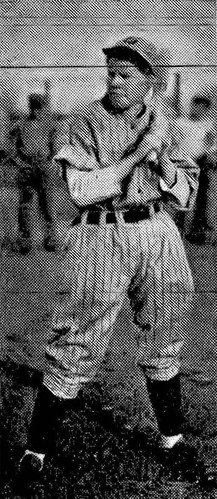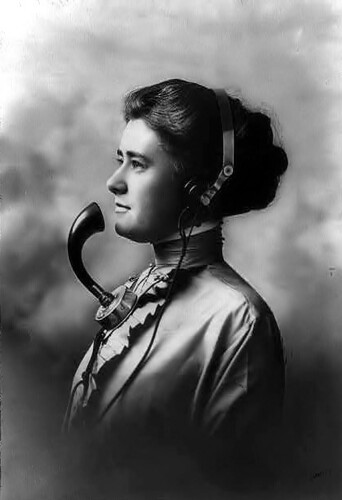When it comes to women in baseball, many are likely familiar with the hit movie, A League of Their Own, which focused on the brief life of the All American Girl’s Professional Baseball League from the Second World War into the early 1950’s. Few, however, may know about Vada Corbus.
In the spring of 1931, Vada Corbus lived with her widowed mother, brother Luke (or Lewis), and two sisters. The family was supported by Luke’s work at a lead smelter and Vada’s two sisters employment at a pasta factory. Luke was a catcher for the Joplin Miners, and in April, 1931, was moved to play right field. This opened up competition for the catcher position and Vada Corbus tried out for the position.
Not much is known about Vada, the newspapers were surprisingly reticent on the subject of a girl playing for the city’s minor league team. There were a few articles, a photo of Vada in uniform, but little else about her. Prior to an exhibition game against the nearby Pierce City team, Vada served as a warm-up catcher. Word was that Vada was going to be signed or was signed with the team to vie for the catcher position and was expected to play in the Miners’ season opener against Springfield.
The game was held on the evening of April 30, 1931. The bright electric lights of Childress Field illuminated the Joplin skyline. The bleachers were full with fans filled with hope for a winning start to the season. Vendors walked the aisles hawking refreshments. Yet when the time came for the home team to take the field for the first inning, Vada was not among them. Her absence was explained by an article that appeared in the New York Times.
On April 18th, the New York Times picked up the story and the news of Vada’s hopeful experiment in the Western Association League. This in turn alerted league officials who stubbornly insisted that there was no place for women in men’s minor league ball. It seems that Vada Corbus fell from the attention of the newspapers and was forced to bid farewell to a dream of playing ball. Her brother never made it out of Joplin. Instead of playing in the big leagues, he remained in his hometown where he worked as welder for Eagle-Picher, before he died in 1952 at the age of 48 from kidney failure.
If anything can be said of Vada, it is that she was courageous for attempting to break into minor league baseball, following in the footsteps of the Bloomer baseball girls that barnstormed the country. She had certainly proven she could play at their level, if unfortunately denied the chance to do it before a grandstand full of cheering fans, men, women, and little girls. While the Joplin Miners may be best remembered for fielding a young Mickey Mantle on his way to the Yankees, Vada Corbus deserves a spot in the limelight of the club’s and city’s history as a pioneer of women’s baseball.
If you have any information on Vada, let us know. We’d love to hear from you.
Sources: The Joplin Globe, Missouri Digital History, 1930 Federal Census, “Baseball: The People’s Game” by Harold Seymour, “Women Players in Organized Baseball” by Society for American Baseball Research.



